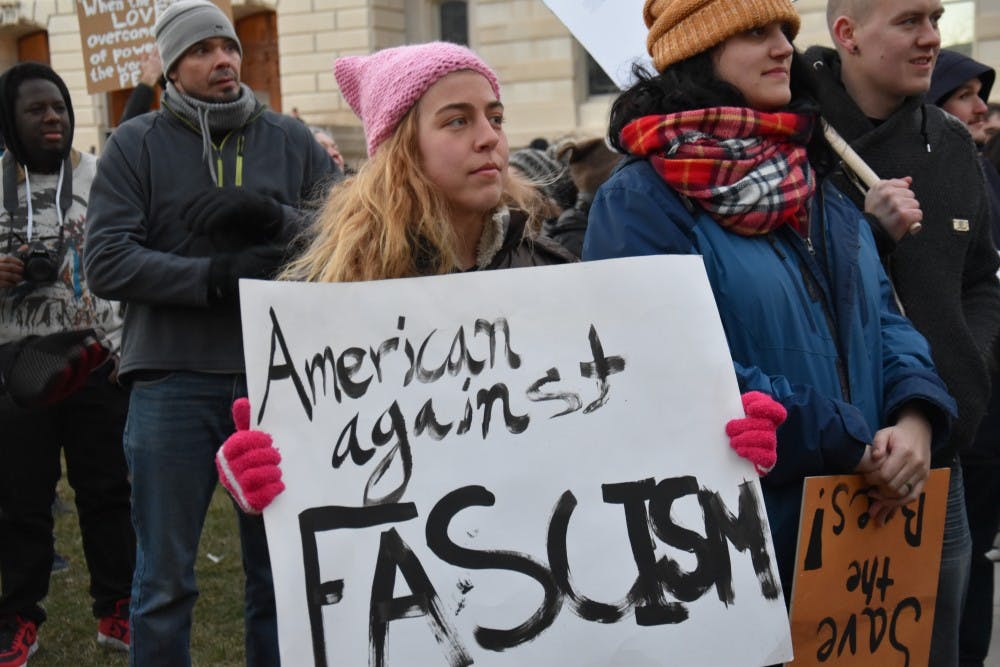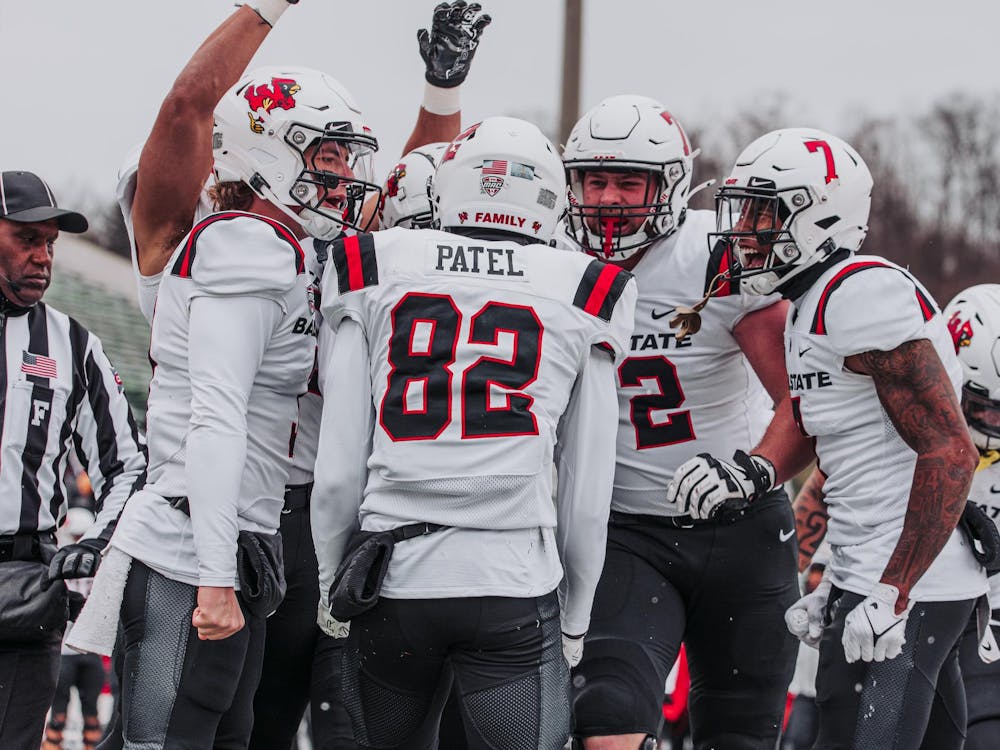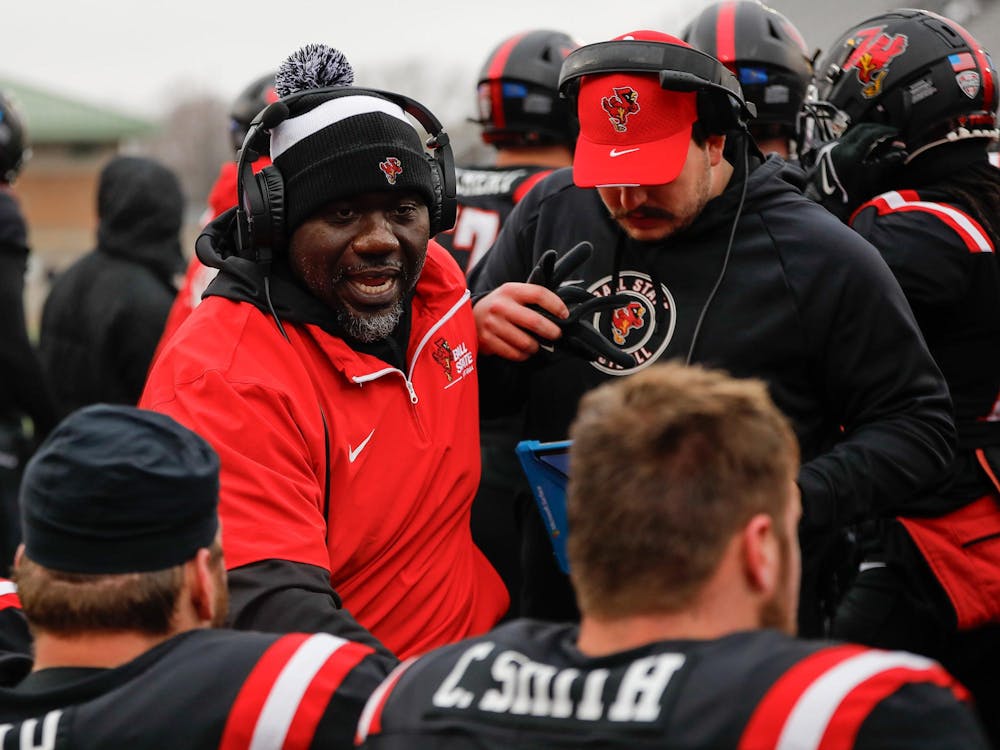About 200 people marched throughout downtown Indianapolis Feb. 4 to protest against the construction of the Dakota Access and Keystone pipelines.
On Jan. 27, President Trump signed two presidential memorandums that would advance construction on both of the oil pipelines. He also signed a memorandum that would require materials for pipelines to be made in the United States.
Kelly Tudor, who is a member of the Lipan Apache tribe and a representative for the American Indian movement, is worried about the rights of indigenous peoples under a Trump administration, but said it won't be anything new for them.
“Honestly no administration has ever upheld treaties. No administration has ever really fully been on our side," she said.
For Tudor, this includes the Obama administration. She said the former president did some good and bad things for Native Americans.
“A lot of people are saying that Obama was on our side," Tudor said. "He really wasn’t.”
Colin Hart, a professor of theater history at Ball State, participated in the protest because he feels like it’s part of a bigger picture.
“This problem is bigger than any of us so we need to prove that together we are bigger than it," Hart said.
He believes the Trump administration will put a “back seat” on native treaties, natural habitats and water quality in general to “the bottom dollar.”
“We can’t turn a blind eye and say ‘well, we will address this again in four years when we have a friendlier climate'," he said. “That’s impossible.”
Emily Hart, a graduate student studying natural resources and environmental management, described the construction of the pipelines a threat to the sovereignty of Native Americans.
She thinks the United States should invest in renewable energy instead of building oil pipelines. She said she is worried about how climate change will affect the world in the future.
Hart recently received a response from U.S. Sen. Todd Young’s office and said she wasn’t happy with the response.
Young’s response stated that Congress has to strike a balance between protecting the environment and economic growth.
“That tells me everything,” she said. “It's such a short-term viewpoint of what the issue is.”
Kitty Taylor, a junior sculpture art major, participated in the protest and believes the construction of the pipelines is a “violation of human rights.”
For her, it’s not only about the construction of the pipelines, but about water quality in general. Taylor is from Evansville and said she lives near the Ohio River.
“I know that river is severely polluted, there is trash coming up along constantly, you’re told not to eat anything out of there and you're told not to really go into the river," Taylor said.
She feels like water quality is being ignored for profit and she would rather see jobs being created through renewable energy and small businesses.
Austin Zimmerman, a junior theater design and technology major, came to raise his voice for Native Americans throughout the United States.
“This country itself has a long history of screwing over indigenous people," Zimmerman said.
He believes the construction of the pipelines is a form of harassment towards indigenous peoples.
“Harassing a group of people for your own country’s gain is not for your country’s gain but for your personal gain," he said. “It should be frowned upon.”





